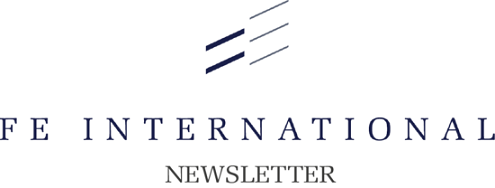
In enterprise SaaS news, Microsoft has acquired Avere Systems, which according to Microsoft is “a leading provider of high-performance NFS and SMB file-based storage for Linux and Windows clients running in cloud,” as part of their strategy to bridge the gap for businesses between on-premise legacy storage solutions and the cloud. Avere will join Microsoft’s Azure as an innovation to file system and caching technologies to improve performance for companies that run large-scale workloads. The acquisition could prove particularly useful for high-performance media customers, as well as other Microsoft Azure clients who rely on cloud services.
Germany also made the news this week, having announced that they will now begin implementing the Network Enforcement Act passed mid-2017. Social media platforms and publishers with more than 2 million users could be fined up to $60 million USD for illegal content on their websites. Publishers will have to ensure that hateful, racist, xenophobic, illicit or otherwise illegal content posted on their site is removed within 24 hours (7 days in certain, less black and white cases) in order to avoid serious fines.
In retail news this week, Sears Holdings, the parent company of Sears and Kmart stores, has announced yesterday that it will close more than 100 stores. The closures break down into 64 Kmart stores and 39 Sears locations, which are all expected to close between early March and April. The end of the holiday season is a common time for companies to identify which stores they will close based on performance. In a statement, the company explained, “We will continue to close some unprofitable stores as we transform our business model so that our physical store footprint and our digital capabilities match the needs and preferences of our members,” suggesting a potential shift in focus to digital sales.
New in business listings we have a $219K home planning and architecture digital products business, with over 1.72 million visitors and 2.67 million page views in the last 12 months, evergreen products requiring minimal owner involvement, a scalable cost structure and an early-mover brand in a lucrative and growing niche. Featured, we also have a $397K digital service business in the translation and interpretation space, with rapid revenue growth reaching 10% CMGR over the last year, strong website traffic with over 100K visitors driving 200K page views in the past year, a trained team in place ready to stay on post sale, and low owner involvement.
In e-commerce listings this week is a $528K dropship footwear and apparel business, boasting rapid revenue growth reaching c.346% YoY growth for the the 2016 to 2017 period, hundreds of profitable SKUs, a high gross margin averaging c.22% over the last 12 months and low owner involvement.
For content business listings this week we have a $153K affiliate business in the haircare and accessories space, with strong revenue growth reaching c.35% compound monthly growth rate over the last year, keyword rankings for c.14,000 keywords with hundreds in top 10 positions, strong traffic with c.500,000 sessions in the last 12 months and low owner involvement. If you are interested in any of the above businesses, follow the links to request a Prospectus.
In event news, Founder Thomas Smale will be attending Affiliate Summit West in Las Vegas on January 7-9, where he will be meeting with industry experts. Shoot us a reply if you are attending or will be in the local area and would like to meet up! Be sure to keep an eye out for our next Boston E-Commerce Meetup on January 31 at WeWork South Station from 6-8pm. We will be announcing the panel topic in the coming weeks, but for now, you can subscribe to the meetup here.
Continue reading below for more on Amazon’s partnership with USPS, Microsoft’s acquisition of Azure, Germany’s enforcement of fining illegal content on social media sites and Sears’ closing of 100 more stores.
Deal Highlights
New:
E-Commerce – Dropship Footwear & Apparel – $106K gross/mo
- Strong supplier relationships creating a competitive advantage
- Rapid revenue growth, reaching c.346% YoY growth for the period 2016 to (e)2017
- Diversified product base with hundreds of profitable SKUs
- High gross margin averaging c.22% over the trailing 12 months
- Low owner involvement with much of the day-to-day outsourced to VAs
Yearly net profit: $224,000
Asking price: $528,000
Digital Products – Home Planning & Architecture – $8K gross/mo
- Early presence in a rapidly growing niche, allowing for multiple first-mover advantages
- Stable traffic with over 1.72 million visitors and 2.67 million page views in the last 12 months
- Lean and simple cost structure allowing for high margins and strong cash flows
- Evergreen products allowing for minimal owner involvement
Yearly net profit: $92,000
Asking price: $219,000
Affiliate – Haircare & Accessories – $5.3K gross/mo
- Impressive revenue growth, reaching c.35% compound monthly growth rate over the last 12 months
- Keyword rankings for c.14,000 keywords with hundreds in top 10 positions
- Strong traffic with c.500,000 sessions in the last 12 months
- Low owner involvement
Yearly net profit: $62,000
Asking price: $153,000
Featured:
Digital Service – Translation & Interpretation Services – $49K gross/mo
- Authoritative brand offering a secure foothold in the growing interpretation services niche
- Rapid revenue growth, reaching an 10% CMGR over the trailing 12 months
- Strong website traffic with over 100K visitors driving 200K page views in the past year
- Highly scalable business model with a remote team willing to stay on post sale
- Low owner involvement
Yearly net profit: $145,000
Asking price: $397,000
Sold:
Lead Generation – 8 Year Medical Job Board – $1.9K gross/mo
In the News…
Trump Accused Amazon of Taking Unfair Subsidies from the Post Office
Last Friday, President Trump criticized Amazon for taking subsidies from the US Post Office.
In a tweet targeted at Amazon, President Trump said, “Why is the United States Post Office, which is losing many billions of dollars a year, while charging Amazon and other so little to deliver their packages, making Amazon richer and the Post Office dumber and poorer? Should be charging MUCH MORE!” This tweet appears to refer to a deal that USPS has struck with Amazon, along with a few other e-commerce retailers. The Bernstein Research Analyst David Vernon estimates that the agency delivered 40% of Amazon’s packages in 2014. When USPS delivers Amazon packages for the “last mile” that packages need to travel to their final destinations, Amazon pays about half as much to USPS than it does to FedEx or UPS, according to Bloomberg. Further, a Citigroup analysis showed that it would cost Amazon $1.46 more to ship the average package through USPS if the costs were “fairly allocated.” The US Postal Service also benefits from the deal, however, reporting that despite their $2.1 billion net loss in the most recent quarter, its package delivery remains a profitable service, unlike its letter delivery.
Despite the fact this deal seems to benefit both parties, some commentators believe the President’s tweet reminds us that American sentiment towards Amazon may be growing resentful.
Social Networks to Face Fines in Germany for Illegal Content
Germany has recently begun to enforce a law passed in mid-2017 that prohibits social networks from posting certain types of “illegal content,” and will fine publishers and social media sites with over 2 million members or users.
The law translates as the Network Enforcement Act, and was passed as a measure to limit hate speech and illegal content. It requires “obviously illegal” material to be removed within 24 hours after the site owner is notified of the violation. However, if there is a grey area, the publisher is afforded 7 days to remove the content. Noncompliance with the new regulation could lead to fines up to 50 million euros (~$60 million USD). Crucially, the law extends beyond hate speech and encompasses “fake news” as well as a range of other illegal content. The delay in enforcement was intended to give publishers a chance to prepare their compliance with the measure, but now time is up and fines will begin to be issued to sites found in violation of the law.
While the act doesn’t change what is considered illegal under German law, racist, xenophobic, nationalist, terrorist and illicit content are all included in the scope of the law. Publishers with more than 2 million users should double check their verification system and ensure that they are immediately aware when such content is posted in order to avoid serious fines.
Microsoft Acquires Avere Systems
On Wednesday, Microsoft announced that as part of their mission to bridge the gap for businesses between on-premise legacy storage solutions and the cloud, they have acquired Avere Systems for an undisclosed amount.
Described by Microsoft as “a leading provider of high-performance NFS and SMB file-based storage for Linux and Windows clients running in cloud, hybrid and on-premises environments,” Avere focuses on maximizing storage performance, especially in flash storage, regardless of how the files are stored. Avere’s president and CEO Ronald Bianchini Jr. wrote in a company blog post, “Our customers efficiently share both storage and compute resources across multiple data centers, and effectively implement and use private and public cloud infrastructures.” This fits exceptionally well with Microsoft’s cloud strategy, about which Microsoft’s corporate vice president for Microsoft Azure, Jason Zander, wrote, “Avere uses an innovative combination of file system and caching technologies to support the performance requirements for customers who run large-scale compute workloads.”
The acquisition could improve performance for high volume media customers, as well as other Microsoft Azure clients who rely on fast access to stored files.
Sears to Close an Additional 100 Stores
This week, Sears Holdings announced that they will close an additional 100 unprofitable stores across the country, following performance metrics from the holiday season.
After the holidays are over is a common time for retail companies to identify which stores should close, and though Sears had previously indicated they would be closing several stores in the coming years back in 2015, we now have an exact list of which stores. The closures will include 64 Kmart stores and 39 Sears stores. Of the decision, the company stated, “We will continue to close some unprofitable stores as we transform our business model so that our physical store footprint and our digital capabilities match the needs and preferences of our members,” suggesting that the company is adapting to a newer, more digital retail landscape. This marks the second time Sears has decided to close a mass of stores it sold to Seritage in 2015. Since that first round, Sears announced plans to pay $407 million toward its pension plan to unlock and allow for the sale of 140 properties, though at that time it was undefined when the sales would take place. Despite these closures, the company announced a smaller net loss for its fiscal third quarter than it did at this time last year, as they strive to remain profitable in the face of vendor disputes.
This recent batch of store closures is expected to take place between in March and April, with liquidation sales set to begin as early as January 12.
